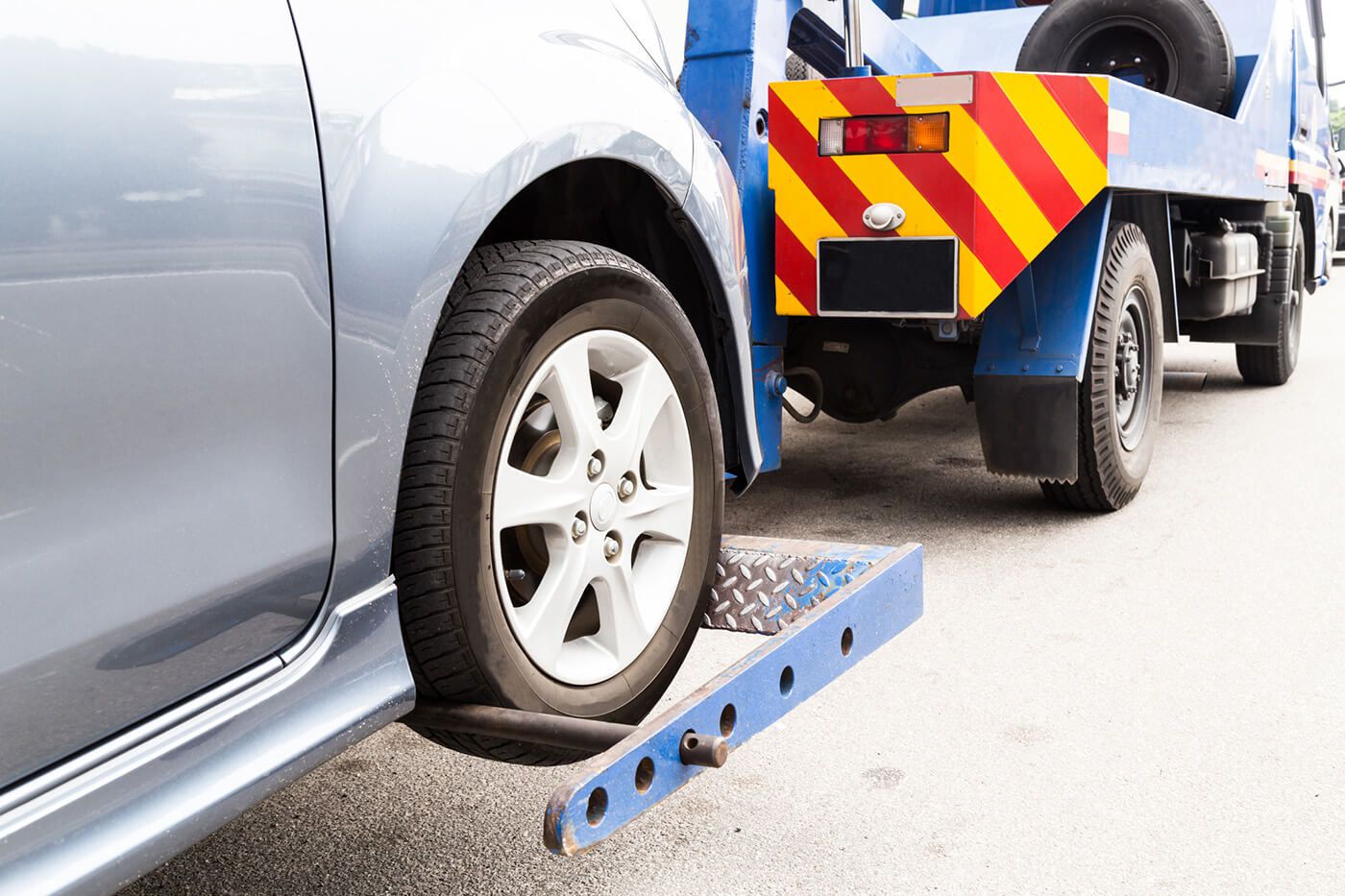

Finance
How Bad Does A Repo Affect Your Credit
Published: January 11, 2024
A repo can severely impact your credit. Learn how this finance issue can affect your credit score and what steps you can take to mitigate the damage.
(Many of the links in this article redirect to a specific reviewed product. Your purchase of these products through affiliate links helps to generate commission for LiveWell, at no extra cost. Learn more)
Table of Contents
Introduction
Welcome to the world of finance, where every financial decision has implications. One such decision that can have a significant impact on your credit is the act of having a vehicle repossessed, commonly referred to as a repo. Whether due to unpaid car loans or leases, repos can have far-reaching consequences on your creditworthiness and financial future.
In this article, we will explore what a repo entails and dive into the specific ways it can affect your credit. We will discuss the impact on your credit score, the duration of negative effects, and other financial consequences you may face. Furthermore, we will provide some tips on how to minimize the impact of a repo on your credit and explain why taking preemptive steps is crucial.
Understanding the consequences of a repo is essential, as it can help you make informed decisions and navigate through challenging financial situations. Whether you are currently facing the possibility of a repo or simply want to be prepared for any future circumstances, this article will provide you with the knowledge and insights you need to protect your creditworthiness.
What is a Repo?
A repo, short for repossession, occurs when a lender or financial institution takes back ownership of a vehicle due to the borrower’s failure to make timely payments on their car loan or lease agreement. In simpler terms, it means that the lender legally reclaims the vehicle because the borrower has defaulted on their financial obligations.
Repos can happen with any type of vehicle, including cars, trucks, motorcycles, boats, or even recreational vehicles. The lender has the right to repossess the vehicle without warning or court approval in most cases, depending on the terms outlined in the loan or lease agreement. Once repossessed, the lender will typically try to sell the vehicle to recoup their losses.
Repos can come as a significant shock to borrowers, as they often happen when people are already facing financial difficulties. It is important to note that repossession laws may vary depending on the country and state you reside in, so it’s essential to consult with a legal professional to understand your rights and obligations in such situations.
Repos can occur for various reasons, such as consistently missed payments, defaulting on the loan, or late payments. It’s crucial to keep in mind that repossession is typically a last resort for lenders after multiple attempts to collect payments have failed. Therefore, it is essential to stay in communication with your lender if you are facing financial challenges and unable to make payments on time.
Now that we have a clear understanding of what a repo is, let’s delve into the consequences it can have on your creditworthiness and financial stability.
How Does a Repo Affect Your Credit?
Now that we understand what a repo is, let’s explore how it can impact your credit. A repo can have a severe negative impact on your creditworthiness and make it challenging to obtain new credit or loans in the future.
The first way that a repo affects your credit is through the impact on your credit score. Your credit score is a three-digit number that lenders use to gauge your creditworthiness and determine the risk of lending to you. When a repo occurs, it is reported to the credit bureaus, such as Equifax, Experian, or TransUnion, and reflected on your credit report. This negative entry can cause a significant drop in your credit score, potentially by several hundred points.
The exact decrease in your credit score will depend on various factors, including your overall credit history and scores before the repo occurred. Generally, the higher your credit score was before the repo, the more significant the score drop will be. This sudden decrease in your credit score can make it challenging to qualify for new loans, credit cards, or even secure favorable interest rates on future financial transactions.
Furthermore, a repo can stay on your credit report for up to seven years, depending on your country’s laws. During this time, lenders and creditors will have access to this information and may view you as a high-risk borrower. This can make it difficult to secure new credit or loans, and if you do qualify, you may be offered less favorable terms, such as higher interest rates or stricter repayment conditions.
Additionally, a repo can also impact your ability to rent a home or apartment, as landlords often conduct credit checks as part of the application process. Having a repo on your credit report can raise concerns about your financial responsibility and make it harder to secure housing.
Overall, the impact of a repo on your credit can be long-lasting and far-reaching. It’s essential to understand these consequences and take proactive steps to mitigate the damage and rebuild your creditworthiness.
Impact on Credit Score
One of the most significant consequences of a repo is the impact it has on your credit score. Your credit score is a numerical representation of your creditworthiness, and it plays a crucial role in determining your eligibility for various financial opportunities.
When a repo occurs, it is reported to the credit bureaus, such as Equifax, Experian, or TransUnion, and becomes a negative entry on your credit report. This negative entry can cause a significant drop in your credit score, potentially by several hundred points.
The decrease in your credit score will depend on various factors, including your overall credit history and scores before the repo occurred. If you had a higher credit score prior to the repo, the score drop will likely be more pronounced. On the other hand, if you already had a lower credit score, the impact may be slightly less severe.
It’s important to note that the impact on your credit score is not solely dependent on the repo itself. Other factors can also contribute to a lower credit score, such as missed payments leading up to the repo, other delinquent accounts, or high credit card balances. These factors can compound the negative effects of a repo and further lower your credit score.
The exact duration of the credit score impact will depend on the credit reporting agency and your country’s laws. In many cases, a repo can remain on your credit report for up to seven years. During this time, lenders and creditors will have access to this negative information and may view you as a high-risk borrower.
It’s important to understand that rebuilding your credit score after a repo takes time and effort. The best approach is to focus on responsible financial behavior moving forward, such as making all future payments on time and working towards paying off any remaining debts. Over time, as you demonstrate positive financial habits, your credit score will gradually improve.
Keep in mind that while the impact of a repo on your credit score can be significant, it is not the end of the world. With patience and dedication, you can rebuild your credit and work towards a brighter financial future.
Duration of Negative Effects
When it comes to the negative effects of a repo on your credit, one important factor to consider is the duration of these effects. A repo can have long-lasting consequences on your creditworthiness, but it’s important to understand that these effects are not permanent.
In most cases, a repo will remain on your credit report for a certain period of time, typically up to seven years. This means that lenders and creditors will be able to see the repo on your credit history during this timeframe. The exact duration may vary depending on your country’s laws and the policies of the credit reporting agencies.
During the time the repo is visible on your credit report, it can have a significant impact on your ability to obtain new credit or loans. Lenders may be hesitant to approve applications due to the perceived risk associated with a repossession. If you do qualify for credit, you may face higher interest rates or less favorable terms compared to borrowers with good credit.
However, it’s important to note that the negative impact of a repo diminishes over time. As the repo gets older on your credit report, its influence on your creditworthiness gradually decreases. Lenders typically focus more on recent credit history and behavior rather than events that occurred several years ago.
As the repo ages and eventually falls off your credit report, its impact on your credit score and creditworthiness diminishes even further. This provides an opportunity to rebuild your credit and demonstrate responsible financial behavior to lenders.
While a repo may stay on your credit report for up to seven years, it’s crucial to remember that you are not doomed to a lifetime of poor credit. With proactive steps and responsible financial habits, you can slowly rebuild your credit over time.
It’s important to note that the duration of negative effects may vary depending on your specific credit situation and other factors. It’s always a good idea to consult with a financial advisor or credit counselor who can provide personalized guidance based on your circumstances.
In summary, the negative effects of a repo on your credit can be significant, but they are not permanent. With time, responsible financial behavior, and a focus on rebuilding your credit, you can overcome the impact and move towards a brighter financial future.
Other Financial Consequences
Aside from the impact on your credit, a repo can have several other financial consequences that can further challenge your financial stability. Here are some of the common financial repercussions of a repo:
- Loss of Equity: If you had made substantial payments towards the vehicle, a repo can result in the loss of equity you had built. This means you lose the value you had invested in the vehicle, leaving you without a valuable asset.
- Deficiency Balance: In many cases, the amount recovered from selling the repossessed vehicle is not sufficient to cover the outstanding loan balance. This results in a deficiency balance, which means you still owe money to the lender even after the repo. The lender may pursue you for the remaining balance, which can lead to additional financial stress and potential legal actions.
- Higher Interest Rates: If you manage to secure new credit or loans after a repo, lenders may view you as a high-risk borrower and charge higher interest rates. This can make borrowing more expensive and significantly impact your monthly payments.
- Difficulty Obtaining Future Loans: A repo on your credit history can make it challenging to obtain future loans or credit. Lenders may be hesitant to extend credit to you due to the perceived risk associated with a repossession.
- Difficulty Renting or Leasing: A repo can also impact your ability to rent a home or lease a vehicle. Landlords and leasing companies often conduct credit checks, and a repo can raise concerns about your financial responsibility, making it harder to secure housing or lease agreements.
- Emotional and Psychological Impact: Dealing with a repo can take a toll on your emotional and psychological well-being. It can be stressful and overwhelming to face the loss of a vehicle and deal with the financial consequences it brings.
It’s important to be prepared for these potential financial consequences and take proactive steps to minimize their impact. Communicating with your lender, exploring repayment options, and seeking financial advice can help you navigate through these challenges and regain your financial stability.
Ways to Minimize the Impact of a Repo on Your Credit
While a repo can have significant consequences on your credit, there are steps you can take to minimize its impact and start rebuilding your creditworthiness. Here are some strategies to consider:
- Communicate with Your Lender: If you are struggling to make payments and anticipate a possible repo, it’s essential to communicate with your lender. Explain your financial situation and explore options such as loan modifications or repayment plans. Lenders may be willing to work with you to avoid repossession.
- Reinstate the Loan: In some cases, you may have the opportunity to reinstate the loan by paying the overdue amount along with any penalties or fees. This can help you avoid repossession and retain ownership of the vehicle.
- Redeem the Vehicle: Another option is to redeem the vehicle by paying off the full remaining balance of the loan. By doing so, you can regain ownership of the vehicle and prevent a repo from appearing on your credit report.
- Rebuild Credit with Secured Credit Cards: Secured credit cards can be a useful tool for rebuilding credit after a repo. These cards require a security deposit, which becomes your credit limit. Using the card responsibly and making timely payments can help demonstrate creditworthiness and improve your credit score over time.
- Focus on Payment History: Moving forward, it is crucial to prioritize making all of your payments on time. Payment history is a significant factor in calculating your credit score, so consistently making timely payments will help rebuild your creditworthiness.
- Diversify Your Credit: If you have the opportunity to obtain new credit, consider diversifying your credit portfolio. This can include different types of credit, such as credit cards, installment loans, or lines of credit. Having a mix of credit can demonstrate responsible credit management and contribute to improving your credit score.
- Create a Budget: Establishing a budget and managing your finances carefully can prevent future financial difficulties. By tracking your income and expenses, you can ensure that you have enough funds to meet your financial obligations and avoid potential repossession or missed payments.
- Monitor Your Credit Report: Regularly reviewing your credit report allows you to track your progress in rebuilding your credit. It also allows you to identify any errors or inaccuracies that may negatively impact your credit score. If you find any errors, promptly dispute them to have them corrected.
Remember, rebuilding your credit takes time and patience. It’s essential to stay committed to responsible financial habits and seek guidance from financial professionals if needed. Be proactive in taking steps to improve your creditworthiness, and over time, the impact of the repo on your credit will lessen, allowing you to move towards a healthier financial future.
Conclusion
A repo can have a significant and long-lasting impact on your creditworthiness and financial stability. Understanding the consequences of a repo and knowing how to mitigate its effects is crucial for protecting your financial future.
By communicating with your lender, exploring options to reinstate or redeem the vehicle, and focusing on responsible financial habits, you can minimize the impact of a repo on your credit. Building a positive payment history, diversifying your credit, and creating a budget will all contribute to rebuilding your creditworthiness over time.
While the negative effects of a repo can be challenging, it’s important to remain determined and patient. As the repo ages and eventually falls off your credit report, its influence on your credit score and creditworthiness diminishes. Use this opportunity to learn from past mistakes and set a solid financial foundation for the future.
Remember, seeking guidance from financial professionals and being proactive in managing your credit is key. Rebuilding your credit will require effort and commitment, but with time, responsible financial habits, and a focus on rebuilding your creditworthiness, you can overcome the impact of a repo and regain your financial stability.
Disclaimer:
The information provided in this article is for informational purposes only and should not be considered financial or legal advice. Consult with a financial advisor or legal professional for specific guidance regarding your individual situation.














